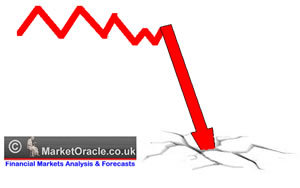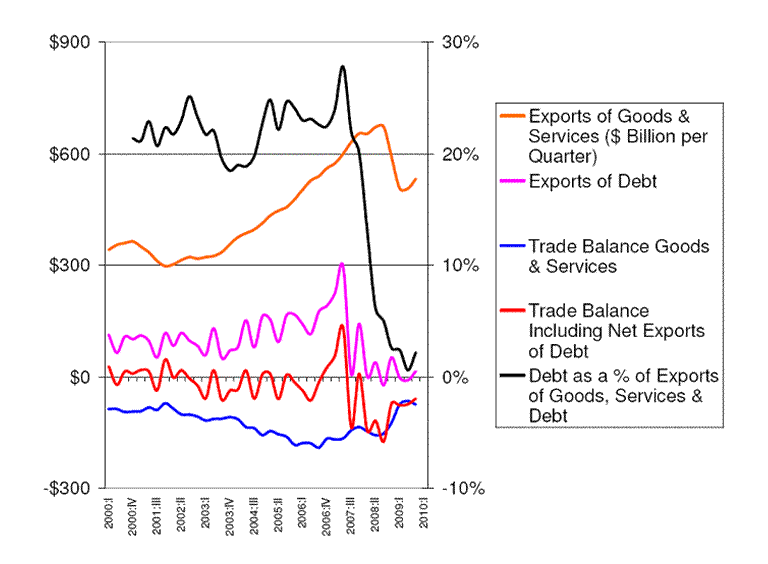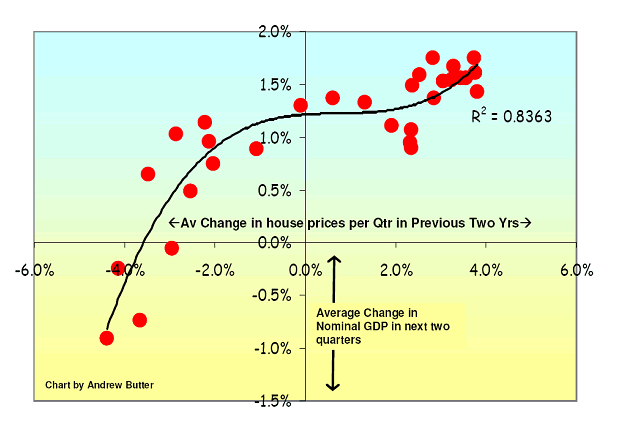Has Economics Run Out of Ideas?
Economics / Economic Theory Jul 30, 2010 - 11:17 AM GMTBy: Andrew_Butter
 Jonathan Finegold Catalan provides an excellent review of the current state of intellectual paralysis in the economics profession: http://www.marketoracle.co.uk/Article21501.html
Jonathan Finegold Catalan provides an excellent review of the current state of intellectual paralysis in the economics profession: http://www.marketoracle.co.uk/Article21501.html
He describes how right-now the debate hinges on re-examination and re-hashing of the ideas of the two legends of economic thinking, John Maynard Keynes and Mises-Hayek (the Austrian School).
 Personally I’m with Keynes insofar as his idea on economists went…“if economists could manage to get themselves thought of as humble, competent people on a level with dentist; that would be splendid”…with the emphasis on “competent”.
Personally I’m with Keynes insofar as his idea on economists went…“if economists could manage to get themselves thought of as humble, competent people on a level with dentist; that would be splendid”…with the emphasis on “competent”.
Fast forward from the Book of Genesis to now, on one hand, there is Paul Krugman proposing that $10 trillion should be spent or lent by the US Government to re-boot the economy (funded mainly by printing money), with the goal of creating inflation so as to by-pass the “liquidity trap” that happens when dropping the base-rate to zero fails to produce the intended “re-booting” (what one of Bernake’s interrogators called “running out of ammo”).
On the other hand the “Austrian liquidationists and deficit hawks” are saying that the economy will not “re-boot” until the malinvestments of the past are liquidated.
Catalan quotes Hayek:
The thing which is most needed to secure healthy conditions is the most speedy and complete adaptation possible of the structure of production. If the proportion as determined by the voluntary decisions of individuals is distorted by the creation of artificial demand[,] resources [are] again led into a wrong direction and a definite and lasting adjustment is again postponed. The only way permanently to 'mobilise' all available resources is, therefore to leave it to time to effect a permanent cure by the slow process of adapting the structure of production.
But Lo and Behold, there is a glimmer of consensus in the confusion; this is how Catalan (who is incidentally of the “Austrian” persuasion), puts it:
The concept of the liquidity trap is the keystone to Krugman's thesis, according to which the rules of the game change when there is a lack of private investment.
As a general concept, the liquidity trap is legitimate in the sense that we are currently in a situation in which, despite the extreme provision of liquidity on the part of the Federal Reserve, there has not been a substantial increase in real private investment. As such, any Austrian rebuttal to Krugman should concede this point.
Forgive me for the hallucinations that keep popping into my mind like post-peyote flashbacks of monks in Medieval Times, debating how many angels can fit on the end of a pin, and LOL a “point” in the debate is conceded by the Austrians; but here is the kicker:
The real debate is whether or not fiscal stimulus can effectively revive an economy (or pull it out of a "liquidity trap") or if fiscal stimulus contributes to the existence of a liquidity trap — there is the distinct possibility that this so-called liquidity trap is the product of regime uncertainty, which may or may not be aggravated by government policy.
All considered — even conceding that we are in what Krugman would call a liquidity trap — within the Misesian-Hayekian framework, the only permanent solution to existing malinvestment is to allow its liquidation and the readaptation of the structure of production.
Well that’s all very well my humble dentists, but I suspect you are drilling into the wrong tooth.
1: Packaging and selling debt is not “production”:
With regard to the “stimulus” that has manifestly failed to re-boot the American economy to it’s previous level of debt fuelled excess (the Keynsians say it was too-little-too-late and the Austrians say that could never work anyway), one thing is certain, which is that the money that was injected never got anywhere near the “productive” part of the economy, at least in terms of how “production” is normally defined.
Unless of course by the dentist’s new definition, the main “productive” business that America was in for the past ten years was creating dodgy debt, with sexy names like ABACUS.
And then packaging it up and stamping, “Made in America With Pride”, on one side and on the other, “AAA Certified”; and then flogging that garbage to dumb pension and insurance firms in USA and to even dumber foreigners.
If the intention was not to pay the money back (and in retrospect that looks like how the scam worked), then those transactions don’t have to be considered “debt”, they can considered as “value added” …”look-see I took a load of garbage costing $100 billion and sold it to someone dumber than me for $500 billion…that’s economic value added isn’t it?”
The stuff that got sold to dumb foreigners, can by the same token, be called “exports”.
From 2000 to 2007 America “exported” about $3.5 trillion of neatly packaged up private label securities, on top of that perhaps another $3.5 trillion were bought by foreigners investing into USA (that’s a form of Foreign Direct Investment (FDI)).
Looking at it that way, America’s biggest “export” for the past ten years, by far, was those dodgy securities, accounting for 20% of “exports” of goods and services since 2000 (as a point of comparison automobile exports including parts were 4%)…which could perhaps explain why the dollar was so strong over that period in spite of the awful Current Account Deficit.

You don’t have to be a Noble-Prize-wining economist to be able to figure out that what just happened; was that America’s main export success-story blew up.
Nowadays selling AAA Rated private label debt to dumb foreigners, is about as hard as selling Thalidomide as a magical cure for depression in pregnant women.
If Krugman or the Austrians are hoping that they can “re-boot” that wonderful engine of “production”, and thus “Save America”, by some clever management of monetary policy, they are worse than incompetent, they are delusional.
2: A housing bubble is not “production” either.
Nowhere in the streams of consciousness of Paul Krugman’s outpourings, is the acknowledgment that bubbles, any sort of bubbles, do not create long-term economic prosperity.
All bubbles do is transfer money from the pockets of one sector of the economy (in this case the poor and the lower-middle class), to another set of pockets (the rich and the bankers).
That may sound like “economic value added” (each sale & purchase agreement was a transaction after all), but the “value added” is only temporary.
I recently put this slide up (I’ve changed the annotation which some people found confusing –note the house prices are from the Case-Shiller 20 City Index and the GDP numbers are from the BEA and by-the-way there is no way of telling if the best fit is a third-order or a second order polynomial, but my guess is third-order).

I haven’t seen Krugman or the Austrians make that “connection”, but it’s a very simple analysis (one set of easily accessible public data against another – you can’t get simpler than that)), and what it says is either (a) that rising house prices (in the past) “produce” the Holy Nirvana of increased nominal GDP or (b) if it’s a second-order, that the way the economy worked then, you can’t have positive economic growth if house prices are going down.
NOTE: I’m talking “nominal”, I don’t do “real”, that is what you get after you take what’s “real” (i.e. nominal), and take away some fantasy figure which is your guess about inflation.
OK you could say that’s co-incidental and that for example whatever it was that caused house prices to rise or fall in the previous two years, magically produced economic growth (or decline) in the next two quarters, so the two are completely unconnected.
I can’t prove cause and effect, just as it is impossible to prove that smoking causes cancer, but at 83% R-Squared, that’s a helluva coincidence.
A more likely explanation is that there IS a connection, because everyone knows that when house prices go up people feel rich, they use their house as an ATM, and they spend all their money buying Chinese-made consumer goods and don’t bother to save, on account of “house prices will always go on going up”.
Hardly a co-incidence that 70% of America’s GDP is from Private Consumption.
So what’s the plan Paul? Are you going to have Mr. Obama create another housing bubble like you lobbied Greenspan to do ten years ago?
Funny how three years ago the world was full up with economists busily patting themselves on their collective backs, explaining in grave tones how their policy of “inflation targeting” was a blockbuster work of genius; I remember watching Helicopter Ben lecturing at Harvard in 2007 and people were sitting in the rain, lapping up every word.
But now…where have all the economists who were going to save the world…gone?
Come on Paul, how about a $100,000 tax break to buy a house? After all, the $8,000 break plus the prodding of Fannie & Freddie to do some more moronic lending the way they did it in the past, did manage to slow the decline (by about 10% according to my calculation)…for a while.
http://www.marketoracle.co.uk/Article21334.html
There are two ways of looking at a housing bubble, when 70% of the population accounting for perhaps 95% of GDP own houses, and you have a system of government where the most popular short-term idea carries the day, well the short-term wins every day.
When the American electorate were given the choice, either (a) house prices going up forever, or (b) not…well they voted unanimously for (a).
That’s democracy in action. But sadly what happened was that the Bush government failed to deliver, and the Obama promises of “change” didn’t change that.
So what’s needed now is for the government to deliver on its promise and create another Krugman Special house-price bubble.
I reckon $100,000 tax breaks should do the trick, say 10 million homeowners went for that scheme (make it a limited time offer to get some enthusiasm going), that would “only” cost $1 trillion or so.
That’s about how much it costs to have a decent sized war these days, so in the grand scheme of things, that’s peanuts; and I’m pretty sure if Americans could chose between the “safety” that they might personally achieve by USA continuing to wage the so far inconclusive War on Terror, or take a risk on “security” and go with $100,000 tax breaks, they would say “Show Me The Money”.
What I don’t understand is what Krugman is proposing to do with the other $9 trillion?
The other way to look at it is that the best way for poor people to climb up the ladder to home ownership, is for house prices to be relatively low (rather than offering them debt that they can’t possibly service to buy expensive housing).
On top of that, when so much of a countries cost base is devoted to paying-off debt on insanely high house prices; that robs productive capability from elsewhere.
As Marc Faber once pointed out bubbles suck money and resources from productive parts of the economy, they suck out jobs too, those go to places where it’s cheaper to live and operate.
So far, since the “reality check” that creating a housing-bubble should probably not be called “productive” economic “value-added”, a total of three million American families have been physically kicked out of their homes.
By my calculation there are another three million to go, unless “someone” does something.
The current economic policy appears to be a mongrel mix of Keynes and Austrian, banks are being bailed out “for the greater good”, but that’s just a way of forgiving the insane loans they wrote; none of that money travels down to the mom and dad of the six-year old kid that’s going to have some stranger kick him out of the house he was born in.
None of the steps that have been taken so far are going to do anything to increase the “productivity” of America, outside of the fact that house prices are 30% to 40% lower than they were three years ago.
Are there any Great New Economic Ideas out there?
I haven’t seen many (or any), it’s hard to get away from the reality that if you tax people so you can waste their money on silly ideas that don’t pay-back, that does not create economic value. One idea that makes sense, (from James Quinn) is to waste less money:
http://www.marketoracle.co.uk/Article21329.html
Another idea would be for regulators to concentrate on making sure that bubbles don’t get created, which is one thing that the new financial regulations have completely ignored.
http://www.marketoracle.co.uk/Article15041.html
http://www.marketoracle.co.uk/Article16952.html
Bill Gross also had some sensible things to say about, instead of the government trying to manipulate the economy, having it focus on providing enabling infrastructure and lowering the cost of living in USA (investment in energy efficient transportation and lowering the huge cost of medical care would be a good start).
http://www.pimco.com/LeftNav/..
But those sorts of policies are not “sexy”, they don’t achieve quick fixes, and what America is looking to it’s economists to do now, is come up with a quick fix.
So I guess the only solution on the table is $100,000 tax breaks for anyone who buys a house (second-home third-home who cares); unless someone has a better idea?
By Andrew Butter
Twenty years doing market analysis and valuations for investors in the Middle East, USA, and Europe; currently writing a book about BubbleOmics. Andrew Butter is managing partner of ABMC, an investment advisory firm, based in Dubai ( hbutter@eim.ae ), that he setup in 1999, and is has been involved advising on large scale real estate investments, mainly in Dubai.
© 2010 Copyright Andrew Butter- All Rights Reserved
Disclaimer: The above is a matter of opinion provided for general information purposes only and is not intended as investment advice. Information and analysis above are derived from sources and utilising methods believed to be reliable, but we cannot accept responsibility for any losses you may incur as a result of this analysis. Individuals should consult with their personal financial advisors.
Andrew Butter Archive |
© 2005-2022 http://www.MarketOracle.co.uk - The Market Oracle is a FREE Daily Financial Markets Analysis & Forecasting online publication.



